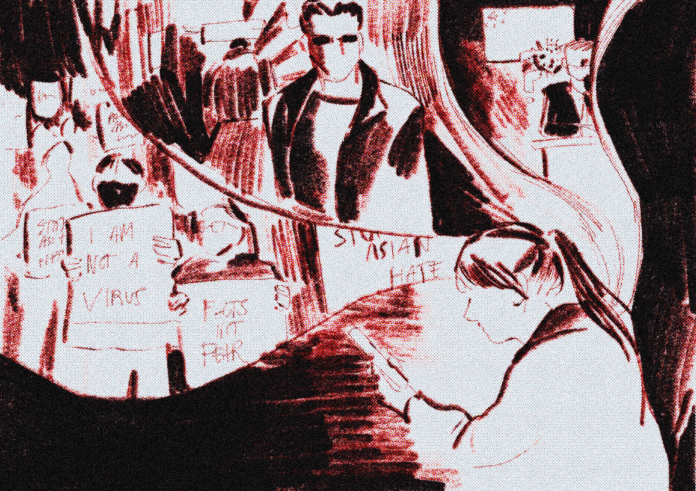This term was first coined by researcher and film critic David S. Roh in his book of the same name, Techno-Orientalism, where he examines depictions of Asia and East Asia in speculative fiction, history and media. He, and other contributors to his work, acknowledged this phenomenon quickly — that the Asian population is stereotypically regarded as hyper technological but intellectually primitive, implying that they are in desperate need of western liberation. In many ways, they are utilized as the “model minority,” which is an important topic all on its own, as this myth is extremely dangerous and is what leads to unhealthy and overwhelming detrimental fetishization of one race.
In the film and media we consume today, techno-orientalism is the subservient machines, the unfeeling inhuman robots and the apocalyptic and dystopic futures that we dismiss far too easily. Examples of this include films such as Ex-Machina, The Matrix and Blade Runner.
Personally, I believe that many of these tropes bloom from Yellow Peril: the belief that East Asians pose an economic and intellectual threat to the Western world. This existential threat is a belief that stems from and is rooted in poor education, but many do not recognize the root may truly be in techno-orientalism.The book itself serves to critique racist and imperialist attitudes of the East.
Geopolitical anxieties had not been alleviated and science fiction had taken advantage of this fear especially around the 1980s, during Japan’s post-war economic rise, and this in turn caused a rise in violence. Many Americans would attack Japanese cars with baseball bats — soon they continued this with Japanese auto workers, utilizing the same baseball bats as weapons, viewing the workers as dehumanized, expendable machines.
Considering the heavy xenophobia that many Asians are facing in today’s climate, I would suggest and strongly urge that this is an issue not to be ignored and I believe that it should be brought to everyone’s attention, particularly when increasing U.S. imperialist aggression toward China is increasing anti-Asian hate in the West. It’s terrifying to imagine that these negative techno-orientalist tropes had been employed in U.S. news coverage of China. It was broadcast that COVID-19 had been bioengineered by the Chinese government, and that it was a weapon of mass bioterrorism. This inspired a wave of confusion and hatred in a time where the world was suffering from fear of the unknown, the start of a worldwide pandemic.
Noam Chomsky, an American linguist and cognitive scientist, discusses the idea of media being used by those in political power to indoctrinate the majority of the population into complacency. This is so they do not recognize the actuality — which is the overwhelming detrimental effects of it on our perceptions of East Asians and many other minority groups. These depictions of them in Western Media as subservient and unfeeling are not only terrible and cruel, but directly adhere to xenophobia. This goes down to the very root of the term “orientalism” which was coined and heavily criticized by academic Edward Said, whose writing I am very passionate about. He writes in his book, “The Orient was not (and is not) a free subject of thought or action…European culture gained in strength and identity by setting itself off against the Orient as a sort of surrogate and even underground self.” This is what is detrimental in and of itself.
I’m not advocating for awareness on one area of ignorance, since prejudice is an issue that directly affects the whole population. If we remain unaware of what is going on directly around us, influencing us and those that we care about, then it is no longer remaining neutral but choosing ignorance and siding with the oppressive and xenophobic perspectives.
Kevin Robins, an academic who defined techno-orientalism as the “phenomenon of imagining Asia and Asians in hypo or hyper technological terms in cultural productions and political discourse,” says it is not always problematic, but the perceptions of it by mass populations may be. Voices are to be used, and I think we should never hesitate to use our own.
Ultimately, if complacency is the rule, we will all suffer for it.





























